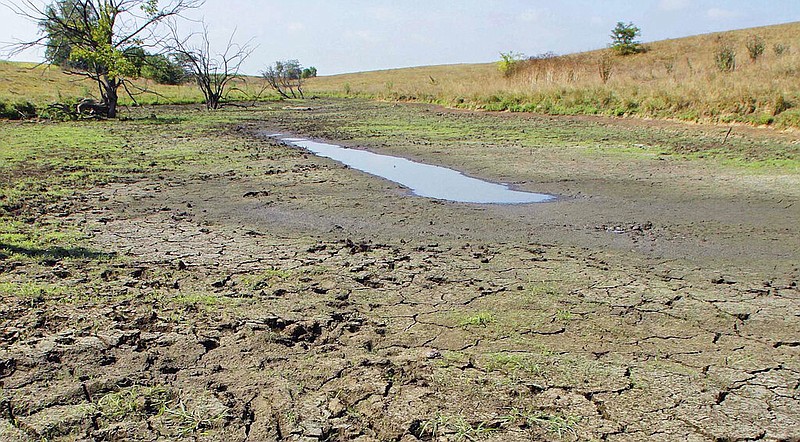A federal court has halted implementation of the Environmental Protection Agency's new rule defining waters of the United States, and two more injunction requests are pending in cases involving 25 states, including Arkansas, said Brigit Rollins, National Agricultural Law Center staff attorney.
The new rule went into effect on March 20. The U.S. District Court in the Southern District of Texas issued the injunction March 19 in Texas vs. EPA. The case halts implementation of the new EPA rule in both Texas and Idaho.
There are two other cases pending -- Kentucky Chamber of Commerce vs. EPA, which involves only Kentucky, and State of West Virginia vs. EPA, which involves 24 states, including Arkansas. Following the Texas action, attorneys in the two other cases filed additional briefs Sunday noting the injunction.
The injunction is "not the end of the road. That's just sort of the first step in the lawsuit," Rollins said. "The arguments and the claims are still lingering" and need to be heard.
"Should the judges in those other two lawsuits issue injunctions, there are a couple of things that are going to happen right away: Once the judge issues the injunction, the current WOTUS rule will no longer be in legal effect," Rollins said. "What that means is that EPA is going to be applying the previous WOTUS rule that was in place."
At issue in all three cases is how EPA defines "waters of the U.S.," known as WOTUS. That definition is critical to enforcement of the Clean Water Act.
MUDDYING THE WATERS
The legal vortex surrounding WOTUS means the waters may get muddier before clarity is achieved. Rollins said the situation harkens back to EPA's 2015 rule redefining WOTUS and the resulting lawsuits.
"What ultimately ended up happening was that more than 50 percent of the states had an injunction on that 2015 rule," she said. "What it meant for those states is that they were applying a different WOTUS rule than in the states that had not joined the suits.
"It's not impossible that we could see that again," Rollins said.
"It creates confusion for landowners, members of agricultural communities, and members of industrial communities. I would imagine it would be particularly challenging for anyone who is operating in multiple states," she said. "You might be subject to different requirements in different states.
"There is the potential for issues to arise with pending Clean Water Act permits that are sort of stuck between those different rules," Rollins said. "And at the moment it's going to be hard to say what that means for those permits."
The National Agricultural Law Center has a page dedicated to WOTUS updates.
For updates on WOTUS and other agricultural law developments, subscribe free to The Feed, the NALC's twice-monthly newsletter highlighting recent legal developments facing agriculture.
For information about the National Agricultural Law Center, visit nationalaglawcenter.org or follow @Nataglaw on Twitter. The National Agricultural Law Center is also on Facebook and LinkedIn.
